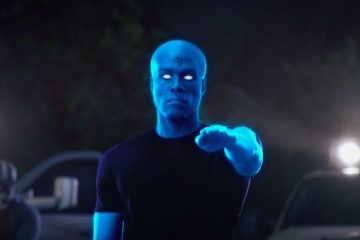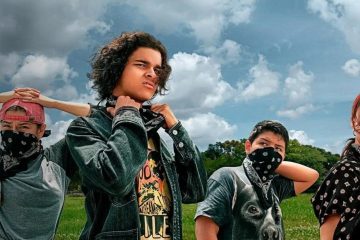What are the television shows that “made” you? Not those that are necessarily the best, nor even the ones you like the most, but the ones that played key roles in your development, that were there at important times for you, or perhaps that you regularly look back to? A few weeks back, I was tagged on Facebook to produce such a list. Now, I love lists. A look through my childhood journals and diaries would suggest it was the only genre I was capable of writing. So I played along, and thought I’d reprint that list here.
However, I also thought I’d follow this up with lists (here, not on Facebook) of other media that “made” me. That’s partly because, to reiterate, I love lists. But it’s also because this list is the oddest of all my media lists. See, television wasn’t as central to my life in the 1980s and early 1990s. I was a child of movies, the VHS, books and more books, and video games. One of the below-listed television shows, and arguably the most important to me, got me when I was little, but otherwise most of them came on the scene when I was more fully-formed, making the below list a little closer to a bona fide Top TV list. Subsequent lists will probably give you more of a look into the weird child I was, whereas most of these intersect with my adult life as a television scholar.
Also, because I cheated and listed 12, I’m just gonna stick with that number and be a consistent cheat.
Listed in no particular order:
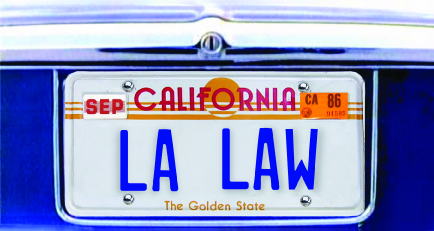
1. L.A. Law
My family watched plenty of movies together, but I don’t remember too much co-viewing of television growing up. Two rare exceptions are the hit sitcom of the 80s whose name shall not be mentioned … and L.A. Law. Soapy in all the best ways, lots of earnest attractive people, Issues, a weekly ad for the US and 80s/early 90s living, and perhaps the only show I arrived in Canada (at the very end of 1989) watching which any of my peers knew (and hence a rare pop cult touchstone we shared and that allowed me not to seem an entirely odd alien from Hong Kong).
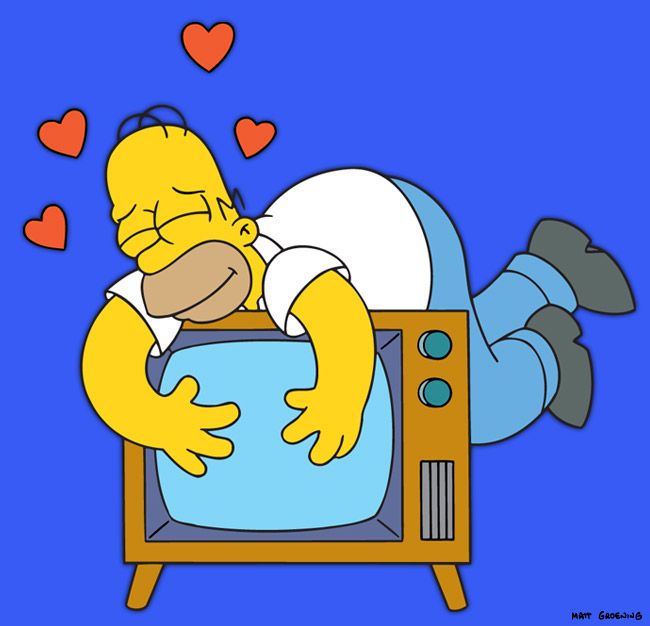
2. The Simpsons
My confession: I started late. Indeed, the same friend who a few years later told me I should go into media studies, convinced me about 5 years into the show’s run that I’d like it. Truth be told, I was never a super fan, but the more that I got interested in parody, the more The Simpsons seemed to be the obvious case study, and thus when the interest in parody (and in how it disturbed all sorts of over-simple, crude models of television, audiences, textuality, and effects) developed, it seemed the natural case study. Then everyone around me decided it was my all-time favorite thing in the world. Granted, for my PhD I did record, watch, and notate over 200 episodes, and I enjoyed this immensely, and granted my resulting expertise with the show made it immediately something I could talk about with anyone and netted me an absurd amount of Simpsons gifts. But it’s sort of a fandom I sidestepped into. Nevertheless, it’s been with me since, I’ve recommended thousands of specific scenes to people, and it’s remained – in Homer’s words – a teacher, mother, secret lover.
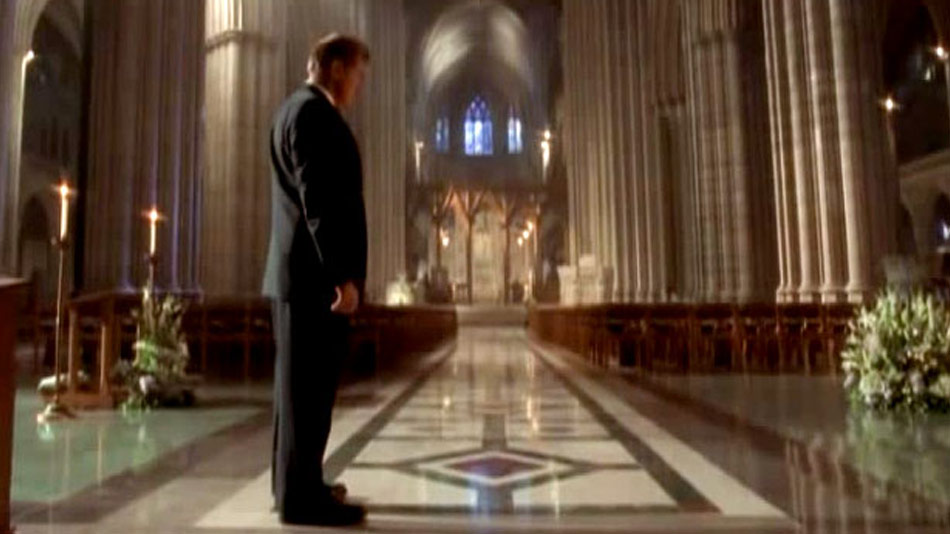
3. The West Wing
I discovered this when I was in England as a grad student, yet in love with my now-wife and knowing I’d look for work in the US (where she’s from). It became my weekly civics class, not just from what it told me about how American politics work, but from the responses and elaborations my wife provided after patiently withstanding my shushing her throughout the actual episode (hey, I needed to listen. I was learning). Years later, when I looked at the 100 questions for the American citizenship test and passed all but one, I could thank The West Wing for this. But I wasn’t just learning ‘Murican. CJ Cregg is amazing. Bartlett’s raging at a closed church and at God for killing Mrs. Landingham in “Two Cathedrals” is wonderful. Sorkin at his best, back when he realized that characters need to be interesting, flawed, likeable, and amusing, not just Correct About Everything. Its sweeping opening theme song still gets me.
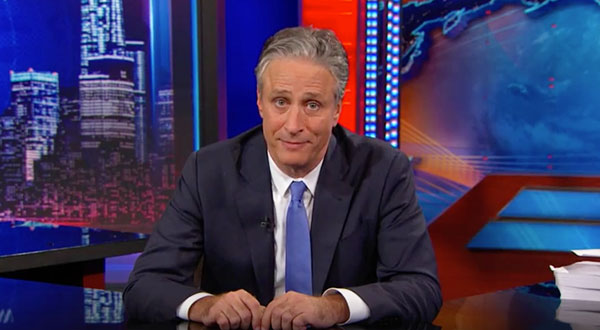
4. The Daily Show with Jon Stewart
If The West Wing taught me about American politics, The Daily Show played an even more vital role in making life in the US possible. I moved to the US in 2003, and was deeply upset to see GW Bush win reelection in 2004. I felt utterly alienated – literally alone in my small apartment in Oakland with no money to voyage further afield, but feeling more profoundly alone in not understanding how this country around me could want more of this guy. But The Daily Show with Jon Stewart kept me sane, partly by picking apart his every move, partly (at a professional level) of showing me that everything I’d said in the vacuum chamber of my PhD about The Simpsons was even more true, evident, and important with another prominent text, but perhaps most importantly because it showed me that other Americans couldn’t stand this crap either. Jon seethed at the crap, but so did his audience on the show, and the many people who began or filled in conversations about politics with “Did you see last night on The Daily Show, ____?” That’s why the attack on satirists as “preaching to the converted” betrays a complete lack of awareness of what good satire regularly does — it may not have turned Bush voters into Obama voters, but it provided a space for community and communal judgment, restoration, laughing off the worst, renewing a commitment to fight on, sharing critical engagement and specific skills of media literacy, etc. And very personally, all of that made me realize that, yes, the USA is full of horrible things and people, but also full of the things and people needed to fight and beat the horrible things and people. In short, it made it bearable to stay, and made me feel like I could get behind this whole “being American” thing after all, in spite of Bush.
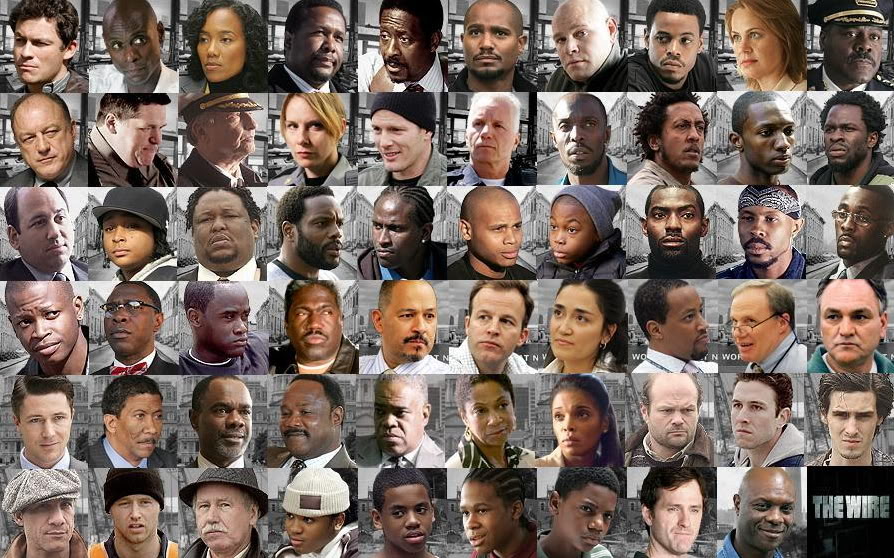
5. The Wire
I fear that, as with Aaron Sorkin, David Simon has since forgotten how important it is to write good characters to go alongside your platitudes, but damn did he know how to do it with The Wire. So many great characters, with so many brilliant performances, all of whom made me care deeply about real people, places, issues, and complexities I’d never been asked to care about before. I came to it late, and thus needed to mainline 3 seasons in about 2 weeks. Season 4 was amazing, and though Season 5 was rocky, its penultimate episode knocked me out. I still vividly remember finishing that episode, turning off the television, and sitting in darkness (since the sun had gone down outside as I watched) for about an hour or two, just thinking about it, reacting to it, soaking it in. I’ve yet to see a show with the complexities and depths of The Wire. Or one that showed me as impressively as did The Wire how institutions work and how deep structures maintain themselves. Phenomenal, important, thoughtful television. And Stringer Bell. And Omar.
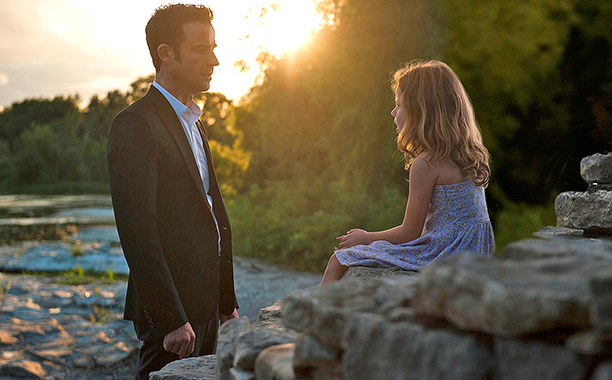
6. The Leftovers
I think it’s fair to say that I was in a depressive funk when I discovered this show. And it’s dark. But it’s also deep, and right when I was asking (classic mid-life “crisis”?) questions of what it’s all about/for, what matters, what doesn’t, etc., along came a show willing to ask those questions too, and seriously. Plus, the performances! Carrie Coon gives one of the best performances I’ve ever seen on television, right to the finale which she n.a.i.l.s. Justin Theroux is amazing. Ann Dowd too. So much television works with a desire to wrap things up nicely, situated in a world of security, and I appreciated The Leftovers for operating in a world of insecurity, and refusing easy answers. I could never watch two episodes back-to-back since this was just so powerful that it needed “recovery” time. A lovely show, and still one of the Peabody Awards I’m most proud of us giving (see #11 for another).
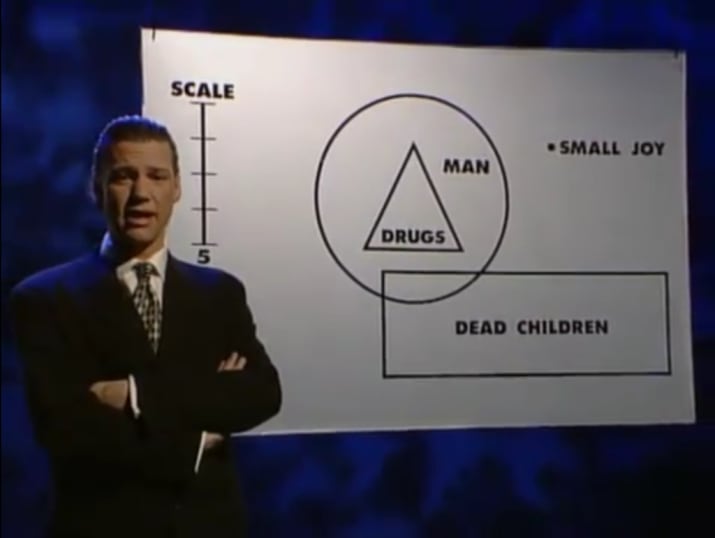
7. Brass Eye
With Sacha Baron Cohen back in the news and on television, this one’s well-timed. I loved Ali G, Borat, and Bruno, and have been a fan since the beginning when Ali G was on Channel 4’s The 11 O’Clock Show. But at the time that he was hot, anyone who knew their British comedians could point out that he was doing something that Chris Morris had mastered, first in The Day Today, then in Brass Eye. Indeed, most of today’s class of satirists owe a great deal to Morris, whose Day Today was surely inspiration for The Daily Show, and whose fake causes in Brass Eye (such as “heavy electricity” falling out of wires in Sri Lanka, or “zoochosis” that led to a pig and a python killing each other in a two-way death pact in a zoo; etc.) and ability to get famous people to read absolute nonsense about them launched a thousand satirical ships. Long before Cohen was getting American politicians to read pseudo-science about “the Cardi B neural pathway” in support of “Kinderguardians”, Morris got Brit politicians to explain that the new Czech super-drug Cake in “the Summer of Death” affected time perception “in the part of the brain known as Shatner’s Bassoon,” and got Baywatch star Alexandra Paul to cry at breaking news of Carla the Elephant ingesting herself by putting her trunk up her butt. Morris tested comic limits, as most evident in his later, deeply weird, deeply dark Jam, and I believe Brass Eye is still the officially most-complained-about show in Brit TV history (for an admittedly weaker, later tack-on episode). But Brass Eye got me thinking about all the ways satire could break the fourth wall and get its hands messy, while also being the best news journal parody around.
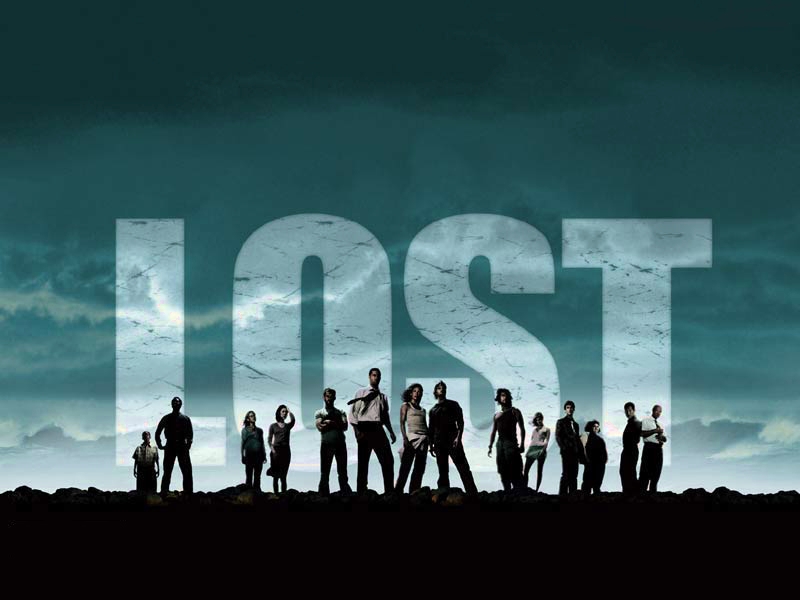
8. Lost
What a pilot! (sorry for the pun) But its first act is amazing, and I love the confusion the show worked with. To many, it never found clarity, and certainly it had a bad season thrown in there until Lindelof (who scores two on my list here) and Cuse were able to negotiate an end-date and we could move beyond stupid flashbacks to how Jack got his tattoos in the most Orientalist scenario around. But I loved how meanwhile the characters were developing. On paper, there were a lot of stereotypes, but the actors (and writers? I don’t know) stretched them and surprised us — Said, Jin, and Sun in particular did a lot to move beyond what was likely on the page in front of them. Ben Linus and John Locke are two of tv’s best characters. I loved the wild plot lurches. I adored some of the relationships. Indeed, whereas most people hated the finale, its attention to characters not plot rewarded what I liked most about the show.
Meanwhile, it was alive in academic discussions, about plot, character, setting, distribution (first big show on online, on iTunes, etc.), ratings, transmedia, you name it. Everyone had an opinion, making it a cool show to talk about, even (especially?) with those who hated it. Its star was ascendant in the early days of Flow, when television studies was strengthening. But so many people outside academia had thoughts about it too, regularly just as smart or smarter as their professor counterparts, so it was just so fun to talk about. And it’s one of the only shows on my list (maybe THE only?) that I was there with from the beginning. A great ride.
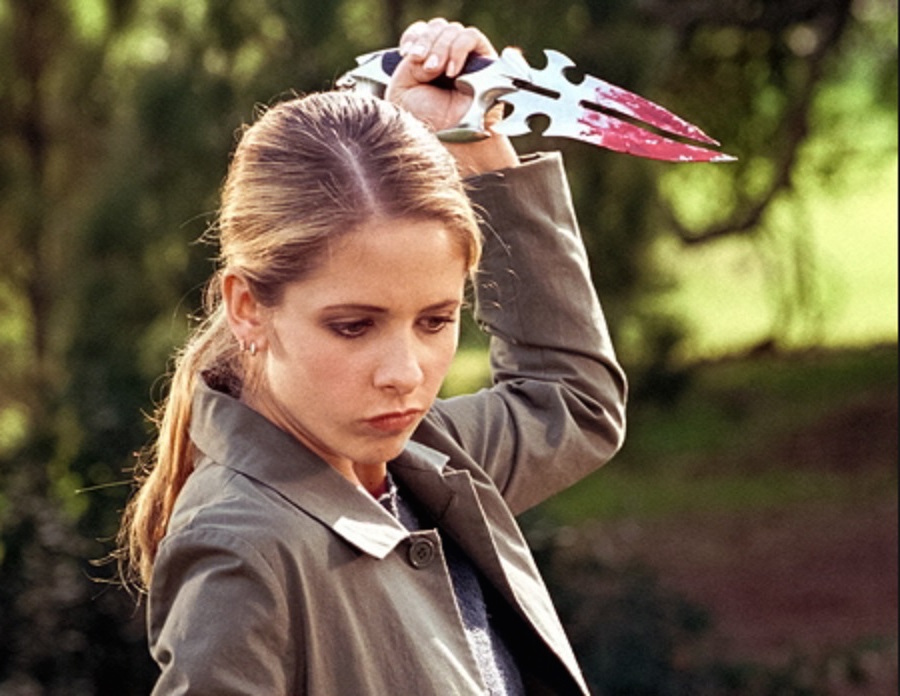
9. Buffy the Vampire Slayer
I need to thank Bertha Chin for introducing me to Buffy, giving me her tapes so I could catch up, and for sending me to The Bronze, the only fanboard I’ve ever chatted on. I need shows that are smart, have intricate plots, and that make me think, and I need shows that can make me feel and cry; Buffy was the rare creature that did both (shout out to Friday Night Lights for similarly pulling the trick). As an atheist, too, I was fascinated by some of the background issues of “earning” a soul, not simply having one, of losing it, etc. And I loved that through The Bronze I was able to discuss this with others. Indeed, Buffy was important inasmuch as it showed me real fans up close and showed they weren’t the weird beasts that pop culture suggested they were.
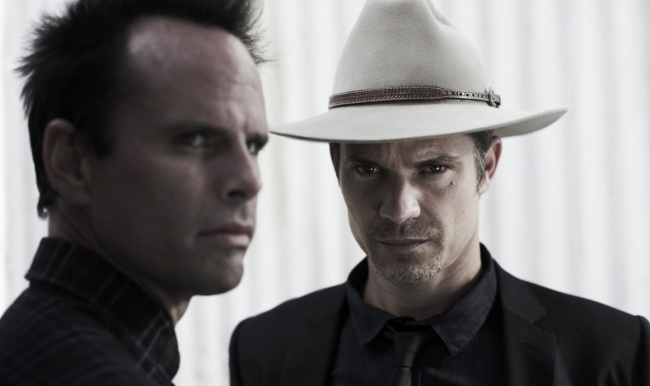
10. Justified
Justified didn’t really change me in any way, but a top TV list without Justified would be wrong for me. It started as an okay procedural of sorts, but quickly became one of the very best serial shows around. Walton Goggins’ performance makes other amazing performances jealous. Timothy Olyphant personified generosity as an actor, regularly letting everyone around him shine, even while tearing it up himself. Damn good television. And the finale is, imho, the best in TV history (well, either that or The Leftovers).

11. Doc McStuffins
Doc McStuffins was the first kid’s show that I fell in love with as a dad. The messaging is so good, and I’m glad my kid could see and identify with a smart young Black girl whose friends acknowledged her intelligence and didn’t see her as an annoying weirdo. My daughter learned the word “odoscope” before her second birthday due to this; and when we first introduced her to who Barack Obama was, we needed to explain “he’s married to that woman on the Doc McStuffins episode where Doc goes on a trip to the big White House”). But it’s also fun and endearing, not “just” messaging. The likes of Caillou and Barney made me fear watching TV with my daughter, but Doc made me realize it was gonna be fun.
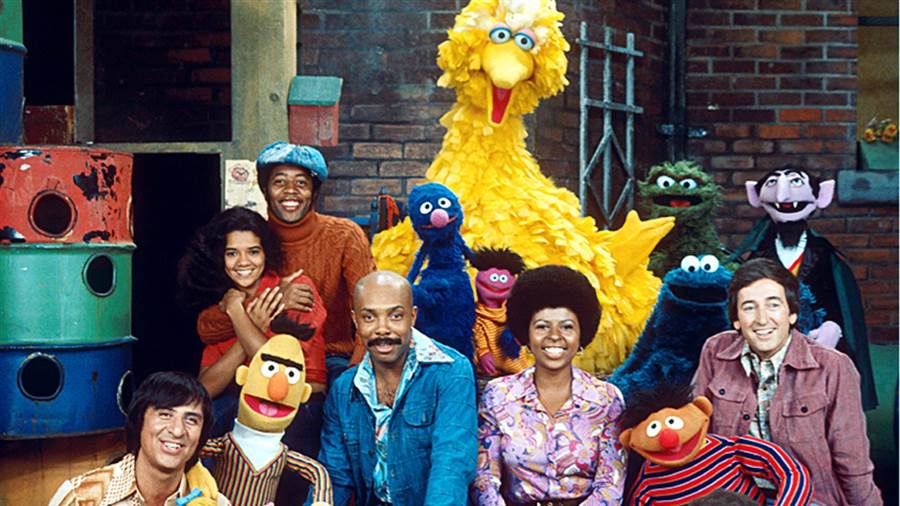
12. Sesame Street
This is the hardest to write about, since I could say the most about it. My first international move came when I was five, and this and the several others after it required me to learn new norms, new ways of doing things, all sorts of difference … yet Sesame Street had taught me to value and embrace these already. I love how it taught me to identify with all sorts of people and beings, from a green frog (who, btw, is a superb model for non-toxic masculinity) to a huge yellow bird. My real-life teachers were all white, yet my teachers on Sesame Street were a diverse bunch. And it was funny — it bears noting that one of the most earnest kids’ shows ever is also one of the funniest, and weirdest. The show and many of its characters model how to go through life curious and open and excited, with a great sense of humor and a caring heart. It’s very much my happy place.

